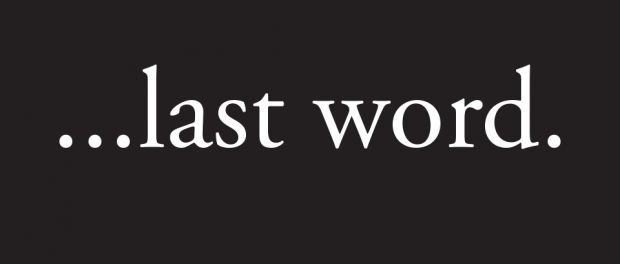Our knowledge matters
Educators, not ideologues, know what works in education

It takes no great insight to note that we are currently living in dangerous times. A previously almost unfathomable connection between a racist, xenophobic, anti-Semitic “alt-right” and an utterly unsuitable occupant of the Oval Office make it impossible not to draw parallels to events on another continent in the first half of the previous century. A stand-off with a nuclear North Korea…illegal and counter-productive travel bans…devastating hurricanes in the midst of climate change denial…the list of threats goes on.
In the face of these events, we in OSSTF/FEESO do what we can by way of, for example, donations to the American Civil Liberties Union and other social justice and charitable organizations. The amounts are only symbolic but they send a message that we must send. Along with others, we make our positions known, keeping in mind Edmund Burke’s saying that the only thing necessary for the triumph of evil is for good people to do nothing.
But that by itself is insufficient; an effort to understand and address root causes is also required of us. How is it possible that so many Americans, in the lead-up to the presidential election, could believe such wild-eyed and destructive conspiracy theories as those promoted by the likes of Alex Jones—conspiracy theories that make House of Cards seem tame by comparison?
Along with economic, social, and historical causes, it is difficult not to see the current American (and therefore global) circumstances as arising at least in part from an insufficiency in the American education system. When some vital capacity for critical thinking is absent from too large a proportion of a populace, surely fingers must point at the way in which that populace was educated.
And yet there is much talk about critical thinking in education circles. In announcing its intentions to begin a review of the Ontario curriculum, the Wynne government points to critical thinking as a significant component of its desired outcomes. Critical thinking, creativity, global citizenship are all mentioned. But what is almost entirely absent is any clear delineation of the knowledge that underpins these supposed generic skills. The Americans have elected, and we are subjected to, a leader bereft of the knowledge that would allow him to think critically. “Nobody knew health care would be so complicated” he proclaims, when in fact anyone who knows the first thing about health care knows that transformation is complicated. But too few, it seems, have a storehouse of the historical, political, and ethical knowledge that would simply rule out their uncritical acceptance of such nonsense. If the education system is not there to supply that rich subject knowledge, who is?
As cognitive psychologists like Daniel Willingham have demonstrated convincingly, critical thinking is domain-specific—it relies on subject expertise. That is as true of education as it is of health care, or any other specialized field. And this is precisely where OSSTF/FEESO’s engagement will continue to matter most. When we oppose the government’s reliance on idealogues, rather than practitioners, in the planning of education reform, we are insisting that our knowledge and our professionalism are crucial to protecting and enhancing public education. And when we do that, we are engaged in the battle for the public good that has always motivated our actions.
In the foreseeable future, we will, no doubt, engage in conflicts both prosaic and profound. Whatever your role in education, remember that as we undertake these battles, OSSTF/FEESO will not only be protecting your rights and interests; we will be fighting for a decent, humane, and fulfilling future for our students and the society in which we live. In this, our knowledge matters, as does the knowledge we pass on to our students. It is the most substantial bulwark we can build against ignorance and the potential triumph of evil that arises from it.

Leave a comment